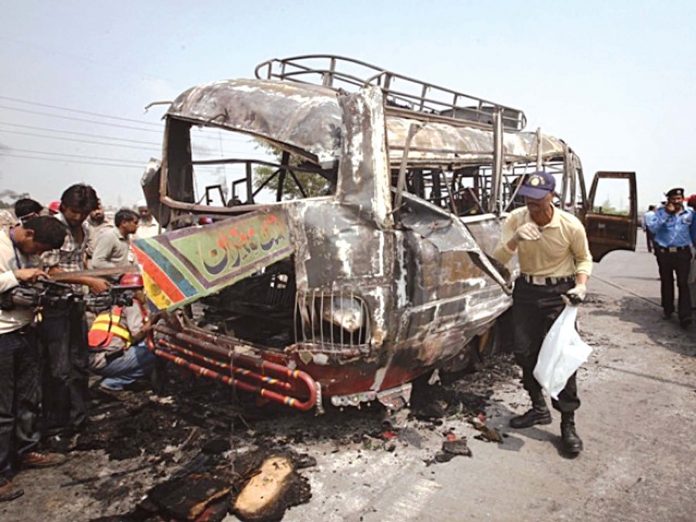ISLAMABAD
All Pakistan CNG Association (APCNGA) Chairman Ghiyas Abdullah Paracha has expressed profound grief over the loss of lives and property due to increasing incidents of cylinder blasts in the public transport vehicles.
He said that use of LPG as fuel in the public transport is the reason behind blasts which continue unabated despite a ban imposed by the Oil and Gas Regulatory Authority (OGRA).
Ghiyas Paracha said that on Dec 26, 2013, the Ogra amended LPG rules 2001 and banned installation of LPG cylinders in motorcycles, scooters, public service vehicles including three-wheelers, buses, coaches and waggons terming it illegal.
However, he said, the ban was never implemented by the concerned agencies which are equally responsible for the loss of life and property of the masses.
He said that LPG is heavier than air, therefore, it causes an explosion if leaked while CNG is lighter than air; therefore, it finds its way out of the vehicle preventing any incident.
Moreover, CNG kits have to be altered to make it compatible with LPG which is very dangerous therefore it must be discouraged.
Motorway Police, Traffic Police, Transport Authorities and District Administration is responsible for stopping these practices but they prefer to be part of the designs of transport mafia that use LPG for petty monetary gains, he said.
He noted that apart from APCNGA, the LPG Association has repeatedly voices against the increased smuggling of substandard LPG which is not only damaging local industry but also resulting in incidents.
The use of LPG in public transport continues to rise due to its price which will continue to pose threat to the lives of the property of the masses, he added.
He asked the government to ensure implementation of the OGRA decision while requested media to find facts before jumping to the conclusion.




